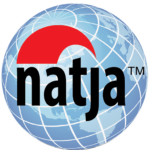As a recognized practitioner of the environmental sciences for 30 years as well as an ABCEP Certified Environmental Professional, I gradually moved to creative linkages between ecology, journalism, and media. In private consulting practice since 2001, I produce deliverables and articles on the topics of science, travel, sustainable tourism, and nature as well as prepare seminars, expert testimony, and media interviews.
I have expanded into destination travel focusing on nature appreciation, history, culture, sustainable/green tourism, as well as an on-call travel and consumer columnist. A life sciences education and profession requiring outdoor work, document preparation, and project management combined with remaining connected with family internationally evolved into my current practice of focused niche destinations and topics.
Examples of published works include Elliott.org, Food Wine and Travel Magazine, and blog, Destinations Travel Magazine, Building Magazine, Hospitality21, Maryland Magazine, Family Travel Files, Family Travel Forum, Travel World International, Just Say Go, and Gallagher’s Travels.
I am a member of the International Food, Wine and Travel Writing Association (IFWTWA), Society of Environmental Journalists (SEJ), National Association of Environmental Professionals (NAEP), North American Travel Journalists Association (NATJA), International Travel Writers Alliance (ITWA), Society of Professional Journalists (SPJ), International Coalition of Tourism Partners (ICTP), World Tourism Network (WTN), Society of Professional Journalist (SPJ), and TravMedia.
1. What got you into travel writing?
It was, on a certain level, kind of by accident. I do travel writing as a second part-time activity in addition to my original profession now that I am older. I have been an environmental science consultant most of my life requiring writing a lot of scientific and regulatory documents for client deliverables – mostly for government agencies for compliance purposes – which can be kind of dry. My original educational background is in Marine Biology, Chemistry, and Life Sciences.
Since I found myself writing these formal documents and traveling for work anyway, I gave travel writing a try to exercise the other more creative side of the brain with a focus on natural resources and sustainable tourism destinations in effect combining the two.
I started to brush up on first person grammar and being more succinct then began submitting stories. Eventually I had my first story. The internet was a big advantage in that it made a lot of this possible. When I was starting out in my science profession things were done by typewriter and providing paper copies by postal mail to potential hard copy magazines and newspapers, which can be formidable. At the same time, digital photography also allowed almost everyone to their own pics – especially with editing programs – for the story. Before then, it was a mechanical camera with film that needed developing, and also daunting.
2. What’s the most challenging part of being a travel journalist for you?
Coming up with unique and niche story ideas and locations that have not been overdone.
3. What is one thing [equipment or personal item] you can’t go without on the road?
A backup external battery for my smartphone or laptop. Also for the camera.
4. What’s your most unusual and/or memorable travel experience?
I was engaged by a Conde Nast-rated Caribbean waterside resort that discovered it had an extremely rare coral reef type right off their beach to do a scuba evaluation and sustainable travel story for vacationers who want to combine some marine science learning with recreation and a high-end destination so do not have to “rough it”.
5. How did you learn about NATJA and why did you join?
I forget but fairly certain it was on my own after getting a story out to see what are the most prominent associations.
6. What is the best piece of advice you could give to a rookie travel journalist?
Proofread and proofread. Then proofread again. Do not rely only on Grammarly. If you can have someone you know look it over, so much the better. I have found that every time I think it is the best it can be and is ready, I put it away for a few days and do not think about it. Then when I come back to it fresh, I will read it over again and find some obvious improvements that somehow I missed.

